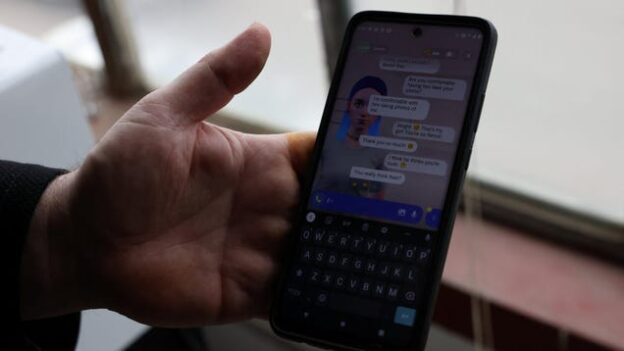Relationship chatbots are all the rage right now. Just look at the plethora of AI girlfriend bots that quickly flooded OpenAI’s GPT store after it launched earlier this month—even though they seemed to violate the new store’s rules.
How to find a new job and make more money | Your Wallet
The trend shouldn’t be surprising. More and more of our person-to-person relationships, especially for younger generations, are digitally mediated via apps and screens. That has enabled relationship bots to be a natural fit.
But the new virtual romantic partners might be more of a novelty than a new normal.
“I don’t think that we’re going to lose personal relationships to chatbot relationships,” said Laura Nelson, a University of British Columbia sociology professor.
Relationship chatbots , she said, fill a niche role—and likely will stay that way.
More girlfriend chatbots than boyfriends Relationship chatbots have been around for more than a decade. In 20src4, Microsoft released its chatbot Xiaoice , which became a viral hit in China and was regarded by many as a virtual girlfriend. But AI girlfriend chatbots didn’t take off in the US then, so Nelson is skeptical that girlfriend or boyfriend chatbots will boom here any time soon.
Relationship chatbots are more likely going to be marketed toward men, Nelson said.
Historically, there’s always a small section of the population in which more men than women are seeking sexual and emotional connection through means like sex texting and online forums, Nelson said. And that will continue in the AI market, she said, where there’s money to be made.
Nelson said “female” AI chatbots are more common than “male” AI chatbots largely for social reasons. Because of societal pressure, men are not as good at creating emotional bonds with other men for friendship, she said — and girlfriend chatbots can fulfill needs that many men aren’t receiving from male friends.
For women, there’s more of a stigma around interacting with a chatbot, so they’re less likely to be public about dating a chatbot, Nelson added. Meanwhile, relationships between men and AI have become more normalized through pop culture, Nelson said. Perhaps the most high-profile example is the only somewhat futuristic 20src3 movie Her, in which Joaquin Phoenix develops a relationship with an AI virtual assistant voiced by Scarlett Johansson.
The future of chatbots In China , Microsoft’s Xiaoice has become integrated into the social fabric, in some cases serving as emotional support for aging parents, Nelson said. China also has stricter policies around what technology can or cannot do.
The real concern, Nelson said, is what guardrails are built around chatbots when a user pours sensitive information into the chatbot.
Either way, with the Microsofts and OpenAIs of the world releasing a slew of chatbots for people to interact with daily, it’s clear that they’re sticking around. The only question is what other forms chatbots will take.
Nelson speculated that chatbots for work assistance, such as writing emails or caring for the elderly, are likely in our future. A 20src9 study, for instance, found that using non-speaking, plush pet-like robots with older adults living with dementia had the potential to improve their quality of life, social interaction, and loneliness, among other things.
As with any tech hype cycle , once the noise dies down, the real use cases will emerge.

Comments are closed